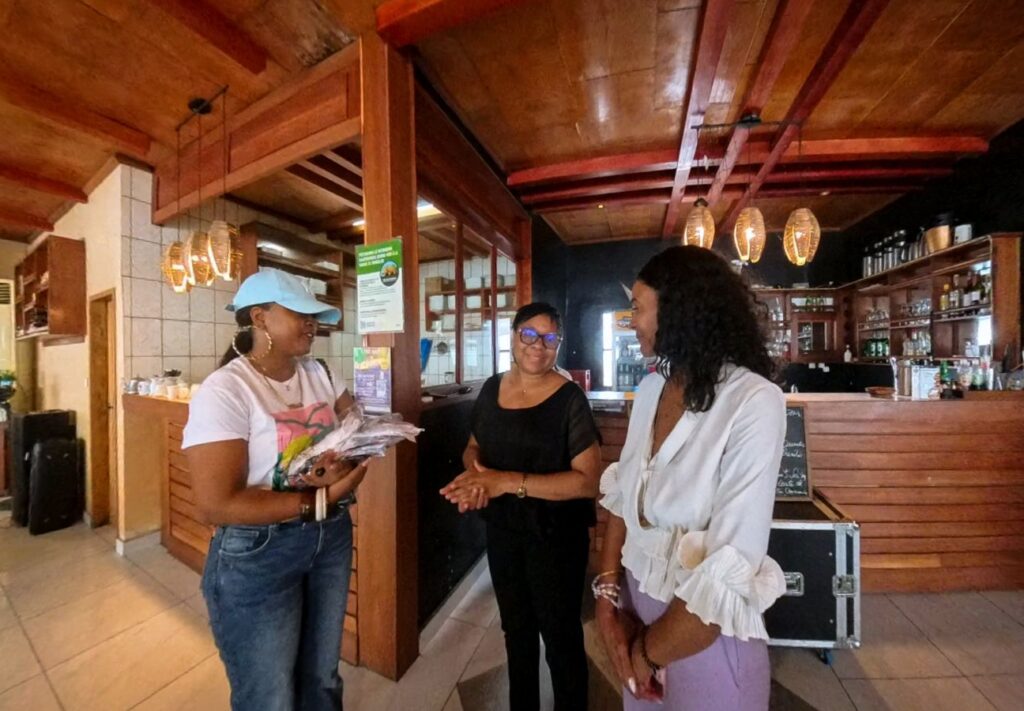
Cameroonian singer, songwriter, and actress Mimie has lent her star power to the protection of pangolins and her country’s natural heritage.
In Douala last week, she visited three restaurants in the city that have signed up for the “No Pangolin on my Plate” campaign. These restaurants — “La Petite Villageoise”, “Chez Koll”, and “Les Perroquets” — have made a bold choice: refusing to serve pangolin meat.
What may seem like a simple decision carries great meaning. By protecting pangolins, they are also safeguarding Cameroon’s biodiversity and preserving a natural heritage that is both precious and irreplaceable.
The pangolin is more than just an animal. It is part of Cameroon’s history, cultural identity, and part of what makes the nation stand out on the global stage.
During her visit, Mimie applauded the restaurants’ commitment and gave out campaign T-shirts to restaurant staff, reminding everyone that protecting Cameroon’s wildlife is also an act of national pride and civic responsibility.
“To protect nature, we must avoid consuming pangolin meat, because this animal is very important to the ecosystem,” she said. “We need to go back to our roots to understand that the pangolin helps protect the nature, it’s important for our forests.”
Efforts to protect pangolins received a huge boost in 2024 with the passage of a new Forest and Wildlife Law which dramatically increased penalties for hunting, killing and trading in protected species like the pangolin, to a maximum of 20 years in prison and 50 million CFA francs (approx. $88,000 USD) in fines.
But beyond the law, what is emerging is a collective awareness — one where every action counts to protect pangolins.
Since the campaign’s launch, campaigners have visited 809 restaurants serving bushmeat and traditional Cameroonian dishes. The response has been very positive, with 502 signing up to the campaign.


Among the restaurants visited, 295 restaurants were serving pangolin meat. Of that number, 148 signed up for the campaign and pledged to stop serving pangolin meat, representing 50.2% of the total.
“These restaurateurs are more than business owners — they are becoming allies of conservation, playing a key role in the fight against the illegal wildlife trade,” said Jennifer Biffot, WildAid’s representative for Francophone Africa. “Their choice sends a strong message: protecting biodiversity means protecting the future of Cameroon.”
With the support of public figures, artists like Mimie, influencers, and everyday citizens, the pangolin is gradually becoming a symbol of Cameroon’s biodiversity.
“We are so proud to have Mimie join our campaign to save pangolins, and her passion for Cameroon’s natural heritage really shines through,” said Simon Denyer, WildAid Africa program manager. “We have also been overwhelmed by the number of restaurants which have pledged not to serve pangolin meat, their commitment makes a huge difference.”
What can you do? Refuse to eat pangolin meat, support restaurants that have joined the movement, and share the message.
Stay in touch and get the latest WildAid updates.
SIGN UP
